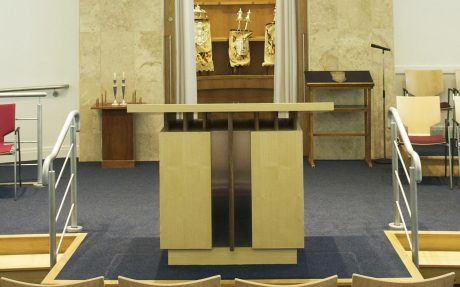Blog

Bespoke Furniture – Exclusive Luxury (part 2)
The Material Difference
One of the major benefits of commissioning a piece of unique, handmade furniture is the freedom the client has in choosing the materials and finish of their design. To use their imagination and the expertise of interiors specialists to commission a piece that meets their individual needs and matches perfectly with the decor in their beautiful home.
In this blog, part two of my bespoke furniture series, I’ll outline some of possibilities (and limitations) of making exclusive handmade furniture to exacting specifications and help you to understand that it is possible to harmonise the form, function and durability of your commission by making good material and finish choices during the design process.
The Choice Of Finish
Your provider will always offer initial options regarding the finish but there are some important considerations to add to the mix. Things like the function of the piece, whether it’s an interior or exterior project or exposure to food, drink or people are key factors to mull.
Whilst it may be straightforward to swap a lacquered finish for an oiled one, if a client wants a low maintenance dining table then this change may not work. That’s why how the client will interact with their handmade furniture in their everyday lives is a vital aspect to explore.
Harmonise Form And Function
Certain designs, due to their complexity or the materials used, may lend themselves more readily to one finish than another. For example, my Sidewinder coffee table, with its hundreds of intimate facets, suits a lighter oil finish rather than a glossy lacquered look.

Sidewinder II sculptural bespoke coffee table
Then there are the design aspects and what finish works best with the piece itself.
A handmade furniture maker often has their preferred finish, and this will be the result of much thought and experimentation. Personally, I prefer a matt effect as this enhances the beauty of the wood to my mind. Should you wish to substitute a matt for a satin finish, this is straightforward. However a gloss finish is much more time consuming and will impact both the price and could offset the aesthetic impact of the piece.
The Difference Of Materials
As with much in life, customising the materials in handmade furniture can bring complications. The original material choice may be down to its technical properties, it’s aesthetic considerations or its availability in the desired form.
My specialism is in handmade wooden furniture but in many cases the base material used makes no difference as to whether any customisation adds extra manufacturing complications.
For example, some furniture makers shy away from using Padauk as its natural oils can bleed into the grain of a pale wood. European Oak is durable for exterior projects, yet American Oak will rot much more quickly. Some timbers bend more readily either with steam or by lamination and there are few viable alternatives.
My Genie floating shelf is made in very flexible Ash which lends itself to being laminated into tight curves. It can be made with other wood, but extra work is required to heat steam and glue the layers around the tightest of corners.

Genie sculptural floating wooden shelf
On a personal level, I often prefer less open or coarse grain timbers for some projects. A ‘busy’ grain can sometimes detract too much from the overall form. Take Yew for example, this by nature a very characterful wood and when used in a rustic project can look superb. However, its knots, defects and wild grain patterns may be totally inappropriate for a more contemporary minimalist form.
In short, the devil is in the detail. Yes, material and finish customisation for handmade furniture is always possible but trust your provider in guiding you to making the right choices that make for a beautiful result that will last and give pleasure for many years.
To discuss your unique piece of handmade furniture contact me at david@davidtragen.co.uk or call 0161 928 5647. From there, we can discuss your desired materials and finishes and make great choices that ensure your unique design stays that way, indefinitely!